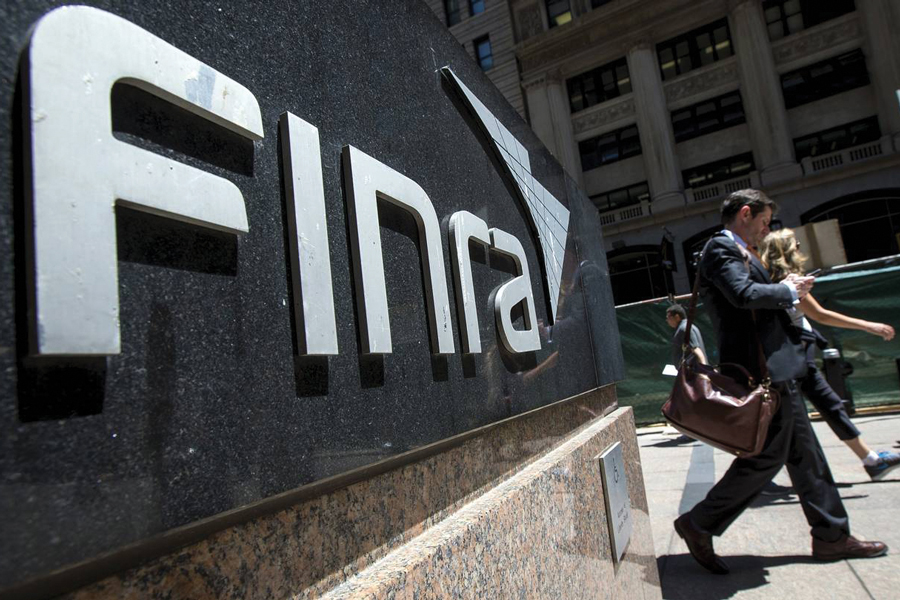

The Financial Industry Regulatory Authority Inc. said Tuesday it sanctioned Aegis Capital Corp. $2.75 million for churning, or excessive trading in client accounts, from 2014 to 2018.
Aegis Capital, which is based in New York and has 300 retail registered reps, will pay close to $1.7 million in restitution to 68 customers whose accounts were "potentially excessively and unsuitably traded" by the firm’s brokers, according to Finra. The firm will also pay a $1.05 million fine for its supervisory violations.
As part of the settlement, Aegis Capital neither admitted nor denied Finra's findings.
"The referenced items occurred many years ago and relate solely to the activity of a discrete number of brokers," an attorney for the firm, Michael Ference, wrote in an email. "Aegis has subsequently invested significant capital to enhance its supervisory and compliance systems which has enabled Aegis to detect, monitor and prevent the referenced activity."
Over the four-year period, Aegis Capital failed to identify trading that was potentially excessive and unsuitable in hundreds of customer accounts, including trading conducted by eight Aegis registered representatives in the firm’s Melville and Wall Street branches, according to Finra.
The trading by those eight brokers in the accounts of 31 Aegis customers resulted in an average annualized cost-to-equity ratio, or break-even point, of 71.6%. As a general rule of thumb, Finra and other regulators regard cost-to-equity ratios of 20% or more to be suggestive of excessive trading.
The trading by the eight brokers in the 31 customers' accounts also resulted in an average annualized turnover rate of 34.9, combined customer costs, including commissions, markups or markdowns, margin interest and fees, of more than $2.9 million, and cumulative losses of $4.6 million.
Aegis and its supervisors, Joseph Giordano and Roberto Birardi, failed to take reasonable steps to investigate numerous “red flags” indicative of potentially excessive and unsuitable trading by the firm's brokers, according to Finra.
The firm failed to act on more than 900 exception reports from its clearing firm that identified potentially unsuitable trading, and more than 50 complaints from customers alleging excessive, unsuitable or unauthorized trading in their accounts, according to Finra.
Giordano and Birardi respectively agreed to a six-month supervisory suspension and $10,000 fine, and a three-month supervisory suspension and $5,000 fine, according to Finra.

A new analysis finds long-running fiscal woes coupled with impacts from the One Big Beautiful Bill Act stand to erode the major pillar for retirement income planning.

Caz Craffy, whom the Department of Justice hit with a 12-year prison term last year for defrauding grieving military families, has been officially exiled from the securities agency.

After years or decades spent building deep relationships with clients, experienced advisors' attention and intention must turn toward their spouses, children, and future generations.

The customer’s UBS financial advisor allegedly mishandled an options strategy called a collar, according to the client’s attorney.

An expansion to a 2017 TCJA provision, a permanent increase to the standard deduction, and additional incentives for non-itemizers add new twists to the donate-or-wait decision.
Orion's Tom Wilson on delivering coordinated, high-touch service in a world where returns alone no longer set you apart.
Barely a decade old, registered index-linked annuities have quickly surged in popularity, thanks to their unique blend of protection and growth potential—an appealing option for investors looking to chart a steadier course through today's choppy market waters, says Myles Lambert, Brighthouse Financial.
